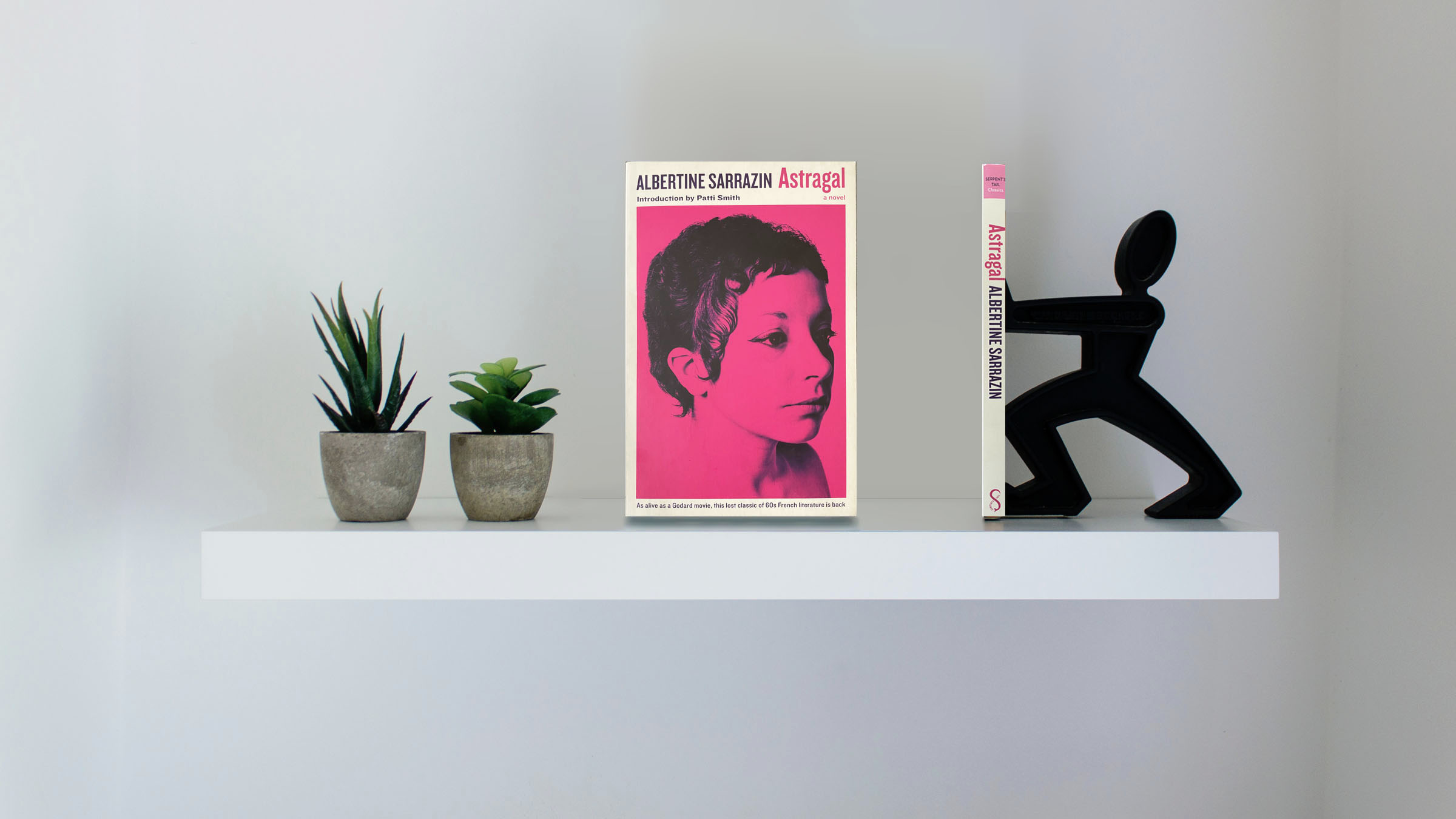Each month, American Express Essentials highlights one definitive literary work, old or new, across any and all genres. The only determinant is quality: a book that makes life more vivid, more inspiring — a gifted piece of work you will want to share. An absolute must-read.
Up this month: Astragal, by the late French writer Albertine Sarrazin. A beloved cult classic about rebellion, youth and romance on the run, now revisited with a new prologue by singer-songwriter and award-winning poet and author (and fan) Patti Smith.
Gabriel García Márquez once said that, when setting out to write a book, he always started with an image. That’s why Leaf Storm begins with an old man taking his grandson to a burial, why No One Writes to the Colonel opens with a man waiting for a boat, and why Love in the Time of Cholera begins with the reminiscence of the smell of bitter almonds. As cliché as it may be, a picture can be worth a thousand words. And, for an author who approaches their craft with gravitas, the first line of their book – that very first image – is paramount.
For Albertine Sarrazin, the first image is that of the sky being lifted “at least thirty feet”, marking the (quite literal) jumpstart of Astragal, her beloved cult novel published in 1965.
And what a start it is.
Powerful enough to convince a 22-year-old Patti Smith to spend her bottom dollar on a copy of the book as soon as she read the first few lines in a bookstore in New York’s Greenwich Village, way back on All Saints Day in 1968. And powerful enough to make any young reader today do the same.
Sarrazin, whose fascinating story and many harrowing experiences inspired the semi-autobiographical tale of Astragal, led an exhilarating life. When it comes to the literary powerhouses, it’s hard to think of many authors whose biographies are even half as thrilling. Born in Algiers in 1937, and quickly abandoned by her teenage mother, Sarrazin is taken in by welfare officials who name her Albertine, after the saint of the day on which she was found. She’s then adopted by a French couple who rename her Anne-Marie – but life with her adoptive family would not offer a happy ending. At the age of ten, Sarrazin was raped by an uncle. Relentless arguing with her adoptive family mars her childhood and adolescence, with her parents even trying to have her adoption annulled in 1952, before sending her off to a reformatory school, from which she eventually escapes. Sarrazin ends up in Paris, where she works as a prostitute and dabbles in petty crime, eventually being arrested and sentenced to seven years in prison for an attempted armed robbery.
It’s in prison that Sarrazin starts writing. And it’s here where the story of Anne, the novel’s protagonist, also begins – right after jumping from a thirty foot wall into freedom. And breaking her ankle in the process. More specifically, her astragale (the French word for the talus bone) after which the novel is titled.

Anne’s story is one of youth, daring and vitality. And it is, dare we say, quite a sexy tale – without ever being obscene or vulgar. Sarrazin’s heroine deals with sex the way you might imagine any modern young French woman would. That is to say, with practicality, but never with routine. She’s never so prudish as to withhold it from herself (or to judge herself for her desire), nor so blasé as to show no interest in it. Especially when it comes to Julien, her lover who comes and goes, and who becomes her riveting partner in crime while consuming her every thought. And so a seductive first few lines rapidly become an irresistible book, from cover to cover.
Which is… surprising. To say the least.
You see, Sarrazin’s novel is not set against the idyllic French countryside. There’s no waxing lyrical about the beautiful flora or the quaint cottages. Not even Paris is painted as the luxurious, coquettish City of Lights most writers dream of. Sarrazin is no Fitzgerald.
And Anne is definitely no Jay Gatsby. She’s got no time for that. She’s a woman on a mission, and to her, the French countryside is filled with low-grade lodgings and potential danger, and Paris is no better than any big, old city. Good for hiding in plain sight, yes, but not meant for leisure or extravagance. Her needs, her desires, are too urgent to fuss over any of that. And yet the French spirit is never as rampant as it is in Astragal.
Sarrazin’s prose is just alive. Even when the reader thinks a subject within the story might be just a tad too depressing – which, you should know, there’s no shortage of those – she finds a way of turning it into passages that fizzle and sputter with youth. With Anne’s youth. It’s one of those books you pick up without much thought, and then end up hell-bent on finishing it in one sitting because, oh my God, you just can’t stop reading. There’s tongue-in-cheek humour and punching one-liners. There’s plenty of passion and romance (What could be more romantic than lovers on the run?). There’s defiance and rebellion and a zest for life on a level equal only to Anne’s complete disregard for authority. Astragal is an ode to what it means to be a young, independent woman in love, both romantically and with life itself. Even when such life is hard, painful and grimey.
To that end, the challenge, from us to yours truly, is to get your own copy (digital, physical, whatever your preferred reading method is – we won’t judge) of Sarrazin’s novel, and wade through the pages yourself. Perhaps, like us, you’ll find Anne’s story compelling enough to share. After all, the best marker of a ‘good’ book is the way it instills an absolute need in its reader to share it with someone else. To put it in someone else’s hands.
Who knows, perhaps Albertine’s words will seem to you as comforting and spellbinding as they once did to a broken-hearted Patti Smith on a long-ago November day.
[Photo in text: Étienne Pouvreau/Flickr]














Sorry, the comment form is closed at this time.